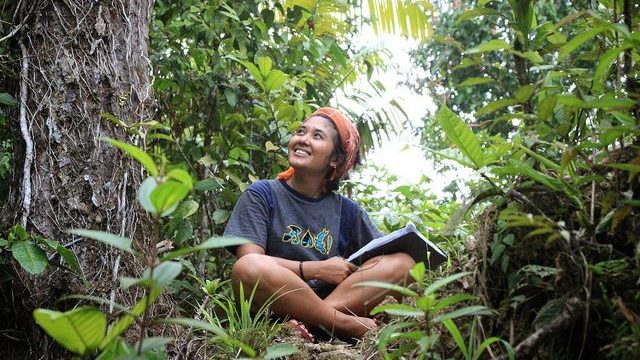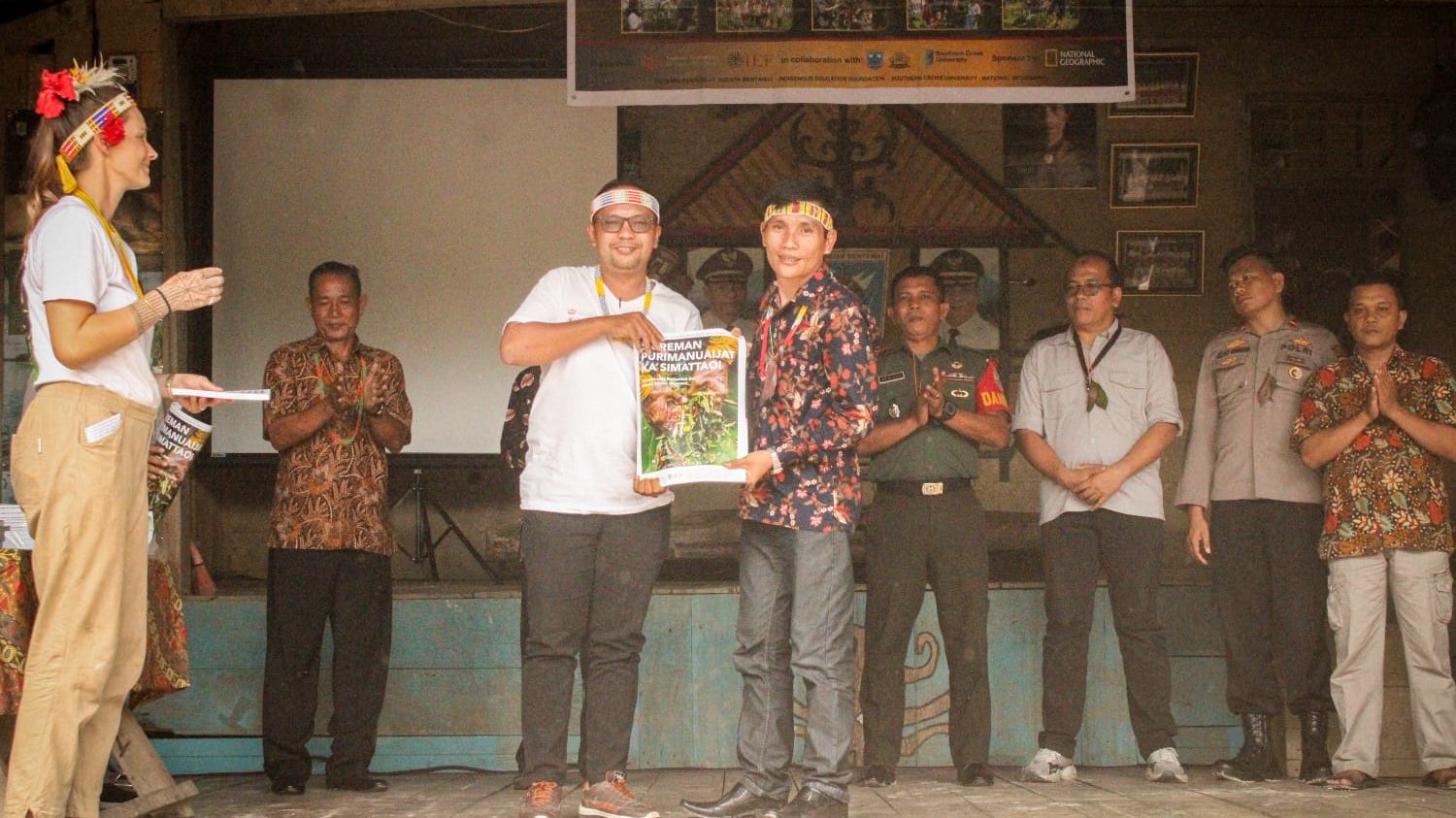
Yayasan Pendidikan Budaya Mentawai (YPBM) has carried out the launch of a new book focused on Mentawai’s most important plant and herb resources, titled ‘Siureman Purimanuaijat Ka Simattaoi’. The launch event was held at the Uma Jaraik Sikerei Cultural Arts Studio on October 20, 2022.
In 2019, YPBM commenced intensive ethnobotanical field research – documenting the plant resources deemed most valuable to the day-to-day life of the Mentawai people in the Sabirut and Sarereiket regions, including Matotonan, and Madobag Villages in the Southern Siberut District. This important research was also carried out in conjunction with the Mentawai language research project, also focused on the Sarereiket area and their specific dialect. The results of this language project was the launch of our very first Mentawai dictionary, Rereiket to Indonesian language, in 2019.
The Mentawai ethnobotanical research project was conducted in collaboration with Australian Researcher, Samantha Lee, a student from Southern Cross University, New Colombo Scholar and a National Geographic Explorer. Samantha worked alongside our Mentawai research team as an intern to our Mentawai Foundation. Samantha is also the Operational Manager of the Indigenous Education Foundation (IEF), our Australian-based partner organization.
After three years conducting research, collating information, checking data accuracy and hosting workshops, finally in 2022 the YPBM Foundation launched the very first Mentawai Plant Field Guide. Our guide is first and foremost to be used as a learning tool for our Mentawai cultural and ecological education program, as well as a simple guide for those interested in learning about Mentawai’s plant diversity and the survival of the indigenous Mentawai people.
Co-Editor, Santi Sagari states: “Many people in our community were concerned that our plant knowledge might become lost or diluted in the next generation. For many reasons, much of today’s young generation lack knowledge about Mentawai plants that are often used for our daily needs, be it medicinal plants, building materials, food ingredients, etc. With this book, we hope the students realize that Mentawai’s plants are very important for the life of the Mentawai people. Ultimately, we cannot live without our plants.”
In carrying out the research, YPBM documented a total of more than 400 varieties of plants and herbs with guidance from the Sikerei (healers/traditional leaders) and community leaders, which according to all were very important for the survival of the Mentawai. The plant field guide includes plants from various categories: food and drink, traditional medicines, construction and buildings, arts and crafts, household utensils and those necessary for supporting facilitation of Mentawai survival.
From all the data collected, YPBM managed to identify 64 types of plants and herbs seen as the most important and vital for survival of the Mentawai. Data from the 64 most important plant resources was then carefully checked for accuracy and referenced against the community survey conducted by the team. From this data, YPBM carried out follow-up surveys and workshops leading up to the finalization and publication in the form of a plant field guide. This guide was launched by YPBM on October 20, 2022.
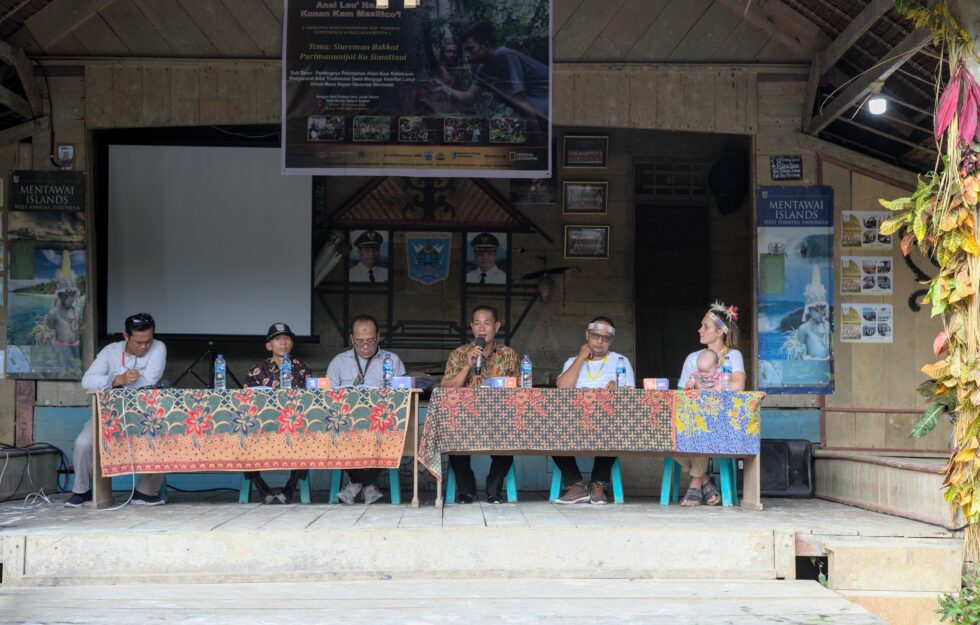
The launch event was attended by the district head and the South Siberut sub-district government as well as members from the community. Indigenous Education Foundation (IEF) partners, Rob Henry and Samantha Lee, were also present to witness the launch of the first edition of Mentawai’s important plant field guide book. It is planned that in the future YPBM will slowly continue research and accuracy of other Mentawai plant resources that have not yet been documented and published either in the form of books, catalogs, brochures and/or leaflets for student learning.
Enlivening the plant book launching event, Mentawai cultural school students from the Siberut area participated by presenting various Mentawai cultural performances and activities. We were all very proud to witness what they have gained while participating in the Mentawai cultural and ecological education program.
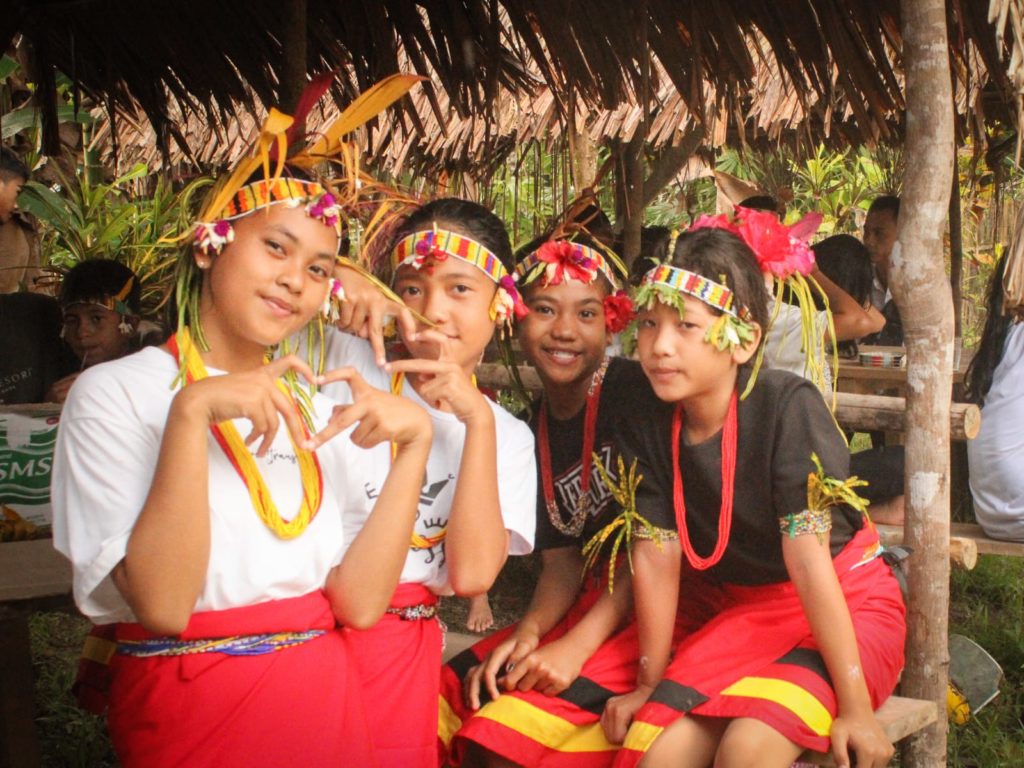
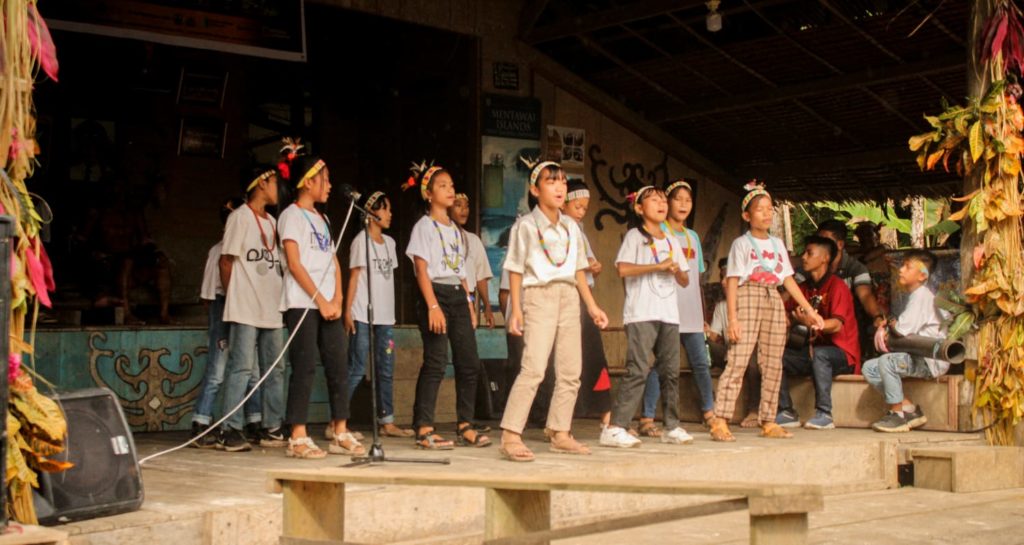
“The launch of this book is our first edition, and so we open up space for the Mentawai people to provide their input for the future improvement of this community resource. We are happy to receive criticism, as the purpose of making this book is to provide access to education about our plant resources for the community, especially our cultural and ecological schools and studios that are under our guidance. We hope to also raise funding for our programs via sale of this book to the public.” Fransiskus Yan – Chairman of YPBM
Finally, YPBM would like to thank the Mentawai Sikerei who cannot be mentioned one by one, but who have been willing to contribute a lot throughout our research; and to the many other members of our community who sincerely and enthusiastically contributed and supported our research; and to the government of Mentawai and our Australian partner, the Indigenous Education Foundation. In particular, we also express our gratitude to Samantha Lee, New Colombo Scholar and a National Geographic Explorer for their financial assistance to support the Mentawai plant field guide research and the One In An Army community who have helped through fundraising so that enabling us to print and publish the “Siureman Purimanuaijat Ka Simattaoi” book.
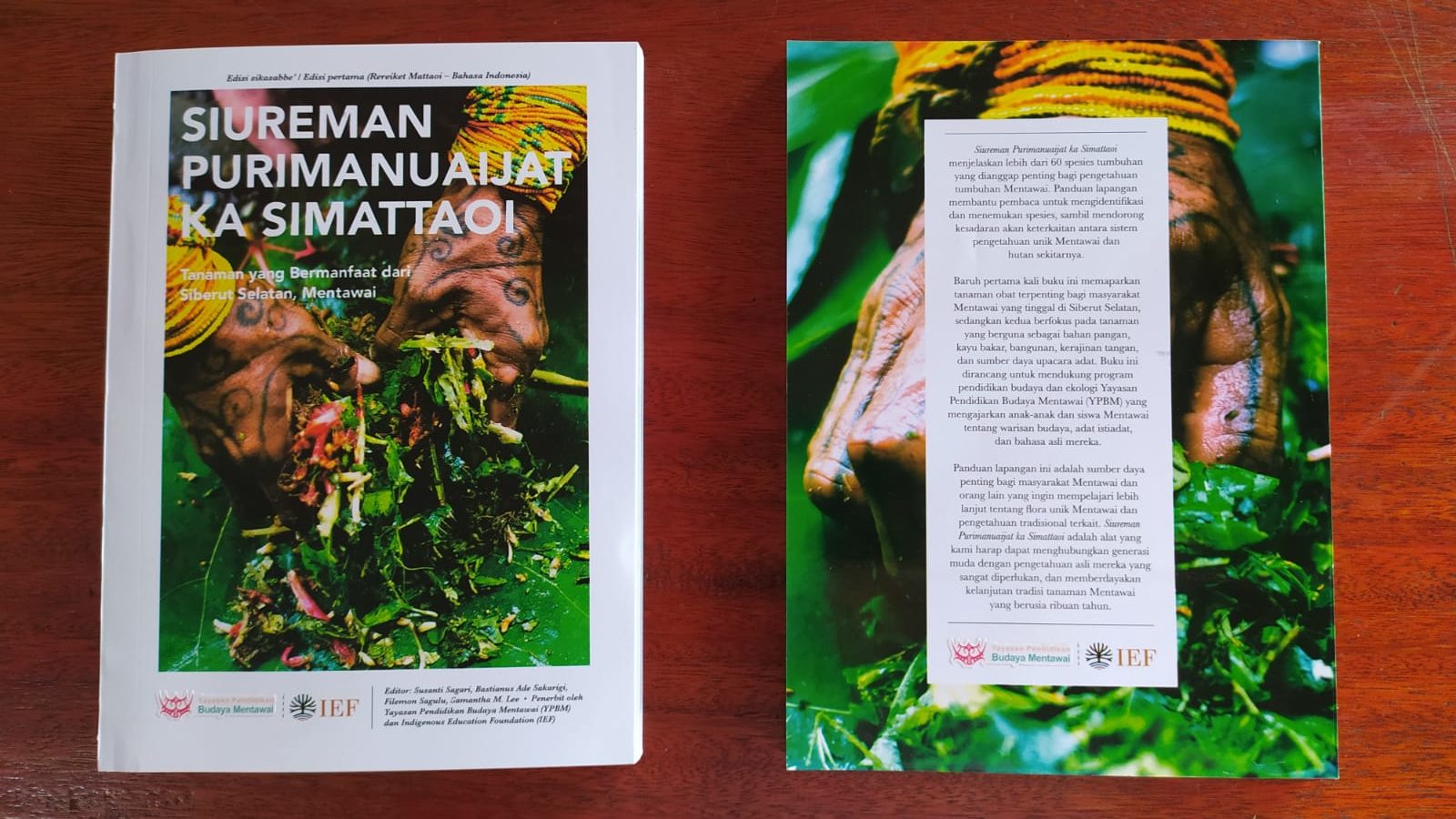
The book can be obtained at the YPBM Office, Muntei Village, South Siberut with a donation of IDR 250,000. 100 percent of all donations generated will be used for the development of the Suku Mentawai cultural school program and the development of a Mentawai cultural advanced research strategy.For orders outside Mentawai please contact: +62 812-6770-8400 (YPBM Secretary – Santi Sagari)
Thank You
Masurak Bagatta

